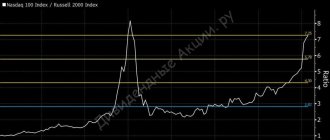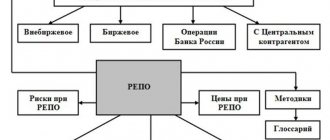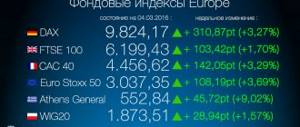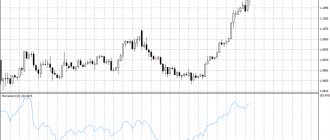Hello, dear reader!
The volume of global trade on world exchanges is tens of trillions of dollars. In the world's leading economies, stock exchanges play the role of a mechanism for receiving investments and evaluating companies and their activities. Moreover, trading on the stock exchange is available to anyone.
There are no special requirements for a potential investor. It is enough to enter into an agreement with a broker and you can start investing. There are different types of exchanges, which will be discussed further.
Types of activities of exchanges
If we describe the types of activities of exchanges, we can say that they are all united by one goal - trading is carried out here. Exchange participants make a profit by trading. They can play for an increase in price (long position) or for a decrease in price (short position). Players who profit from price increases are called “bulls.” Those who play short are called “bears”.
To understand the features of the exchange, you should gain experience in this area. But theoretical knowledge is also very important. They can be gleaned from specialized literature.
Scheme of work
When they talk about exchange activities, they mean a common goal - trading operations are carried out here. Exchange trading participants carry out transactions and make a profit. They play both on rising prices (long positions) and on falling prices (short positions). Before the computer era, transaction agreements were conducted orally. Currently, most trading operations are carried out electronically using special programs.
Brokers submit orders for the purchase/sale of assets to trading systems. Other traders place counter bids. Executed transactions are recorded, implemented, organized, and settlements are guaranteed and the interaction of deliveries and payments is ensured. Exchanges charge commission fees on every trade made, and this is their main source of income. In addition, sources of profit can be membership fees, fees for access to trading and the sale of information.
New York Stock Exchange
The main functions of exchanges are:
- provide a place for trading (provide a meeting between buyer and seller);
- organize exchange trading;
- establish trading rules, including standardizing goods sold at auction;
- develop standard contracts;
- establish quotes, that is, the cost of the goods, which is announced by the seller and buyer and at which they make a transaction;
- regulate disputes (arbitration);
- engage in information activities;
- provide certain guarantees for the fulfillment of obligations of those participating in the auction.
Types of modern exchanges
All exchanges can be classified depending on the values that are used when performing exchange transactions. The types of modern exchanges are based on the types of values. The following values can be used as objects of trading operations:
- Useful resources - gas, oil, ores;
- Securities and shares of various enterprises and banks;
- Bank checks and currencies of different countries;
- Products of everyday consumer demand - raw materials, food products;
- Information Technology;
- Electronic money (cryptocurrency);
- Intellectual property objects;
- Precious metals and precious stones (gold, diamonds, platinum);
- Cash debt obligations (bonds).
Types
Based on the degree of government intervention in exchange activities, there are three types of exchange trading:
| Type | Description |
| Private | The presence of only members of the exchange corporation, which is a joint-stock company with many shareholders and public reporting, is allowed. The authorized capital is divided into shares and exchange certificates. Each member must have at least one certificate giving the right to conduct transactions. Typical for the UK and USA |
| Public | It is established by the state itself, which regulates exchange activities and invests funds here. Managed by a special committee elected by brokers and approved by the government. Every entrepreneur who is included in the trade register and has a certain amount of capital can be a member of the exchange. Persons who have purchased single tickets are also allowed for trading operations. Characteristic in Western European countries, including France and Belgium |
| Mixed | Typical in the CIS countries. Established by central and local government bodies and non-state structures. Neither the state nor the collective-private element usually predominates, although there is a fluctuation in the share of capital towards one or the other group |
The exchange does not conclude any purchase/sale transactions. Transactions are concluded by professional intermediaries (brokers). Entrepreneurs have the opportunity to conduct trading operations only with the help of brokers. The value of assets is determined by an open clash of supply and demand of those participating in the auction.
Depending on the degree of participation of visitors in trading, exchange trading can be:
- open (in addition to brokers, visitors can also sign contracts);
- closed (only brokers take part in trading).
Exchanges are divided by product range into:
- Universal, trading a wide range of different products.
- Specialized, which specialize in a specific product.
In addition, exchanges are classified according to the characteristics of their activities and the degree of participation in international trade, and can be international or national. International markets serve certain world markets. Exchange operations are carried out by representatives of business circles of different countries. The international activities of exchanges are ensured by the currency, trade and tax regimes of the countries where they are located.
By the beginning of the 20th century, exchanges were classified into 4 types:
| View | A comment |
| I | An inclusive meeting |
| II | A closed assembly that is completely regulated by the state |
| III | A corporation that is comprehensively regulated by the state |
| IV | Is a free corporation or a private organization of a free corporation |
All these types of exchanges have their own characteristics. But they are united by the fact that they help improve and facilitate market relations, regulate and streamline (written and unwritten rules) active market agents, and facilitate the transfer of capital. In addition, they act as indicators of market orientation.
Currency exchanges
On currency exchanges, operations are carried out for the free sale and purchase of currencies of various countries on the basis of quotations - exchange rate ratios. The foreign exchange exchange belongs to the category of the most liquid exchanges. The ratio of exchange rates on the foreign exchange exchange (quotes) largely depends on the economic situation in the issuing countries and is a reflection of the purchasing power of the currencies. On currency exchanges, the process of establishing the real market rate of a particular national and foreign currency takes place. All currency exchanges are legal entities and important elements of the foreign exchange market infrastructure.











